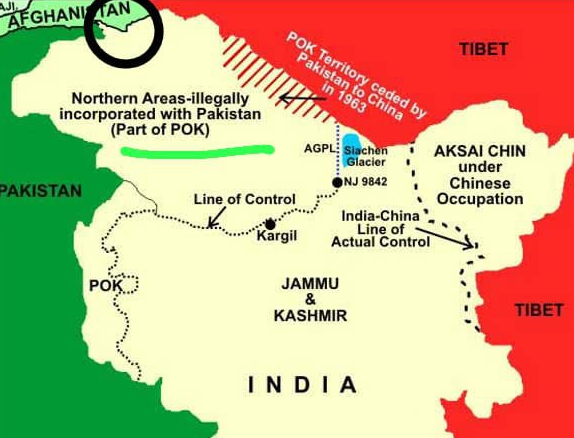The Rawalpindi Factor (GS Paper 2, IR)

Context
- On August 5, 2019, the Indian government abrogated Article 370 of the Indian Constitution, which granted special status to Jammu and Kashmir (J&K).
- This move, which also involved the bifurcation of the state into two Union Territories—Jammu and Kashmir, and Ladakh—was aimed at integrating J&K more closely with India.
- It marked a significant shift in India’s approach to its relationship with Pakistan and its internal management of Kashmir.
Internal and External Relevance
Impact on India-Pakistan Relations
- Internal Assertion: The constitutional changes allowed India to assert that J&K’s internal status is now firmly under its control and not open to negotiation or external intervention. This move has diminished Pakistan’s ability to leverage international forums to challenge India’s stance on Kashmir.
- Continued Relevance: Despite this, Pakistan’s ability to interfere persists, as evidenced by the increase in cross-border terrorism. This underscores the necessity for India to maintain vigilance and address potential threats from Pakistan effectively.
Reducing Global Salience
- Historical Context: India’s Kashmir policy has historically been influenced by international dynamics, particularly since the 1948 UN intervention. The 1972 Simla Agreement aimed to bilateralize the dispute but did not eliminate third-party influences.
- International Focus: Throughout the late 1980s and 1990s, Pakistan used global human rights concerns and nuclear fears to gain international support. However, India has recently reduced the international prominence of the Kashmir issue, aided by improved relations with major global powers and its economic growth.
Diplomatic Maneuvering and Military Strategy
End of the Cold War and Global Dynamics
- Increased Pressure: Post-Cold War, Kashmir became a focal point of global human rights and nuclear concerns. India faced significant international pressure and scrutiny during this period.
- Economic Growth and Diplomacy: India’s economic growth and enhanced relations with the United States, particularly during the George W. Bush administration, helped mitigate international pressure. The U.S. shifted focus from Kashmir to nuclear non-proliferation, benefiting India’s position.
Constitutional Changes and Diplomatic Response
- Modi Administration’s Strategy: The constitutional changes were part of a broader strategy to counter Pakistan’s support for militancy and its international advocacy for Kashmir. India enhanced military deterrence, halted engagement with militant groups, and insisted that dialogue and terrorism could not coexist.
- International Response: Pakistan, with China’s support, sought to internationalize the issue by taking it to the UNSC. India countered this with backing from the United States, France, the UAE, and Saudi Arabia. This international support, combined with India’s economic and strategic growth, has weakened Pakistan’s stance.
Future of India-Pakistan Engagement
Ongoing Vigilance Required
- Internal and External Challenges: India must remain vigilant despite recent successes. Pakistan’s internal political instability and economic struggles have reduced its immediate threat, but the Pakistan Army remains a potent force in the region.
- Kashmir’s Future: Any renewed unrest in Kashmir will likely attract international attention. Therefore, India should focus on:
- Internal Reconciliation: Addressing local grievances and ensuring inclusive development in Kashmir to foster internal stability.
- Counter-Terrorism: Strengthening measures to combat cross-border terrorism and insurgency.
- Diplomatic Engagement: Engaging with various elements of Pakistan’s polity and leveraging international support to counter attempts to internationalize the Kashmir issue.
Strategic Approach
- India’s strategy must be multifaceted, integrating domestic stability with effective counter-terrorism measures and strategic international diplomacy.
- By navigating these complex dynamics, India aims to secure long-term regional stability and manage its relationship with Pakistan effectively.
Conclusion
- The constitutional changes in Kashmir represent a significant shift in India’s approach to its internal and external challenges.
- By asserting control over J&K and reducing the international salience of the issue, India has strengthened its position.
- However, the persistence of cross-border terrorism and the potential for renewed international scrutiny necessitate a nuanced and proactive strategy.
- India’s continued focus on internal reconciliation, counter-terrorism, and diplomatic engagement will be crucial in managing its complex relationship with Pakistan and ensuring long-term stability in the region.


